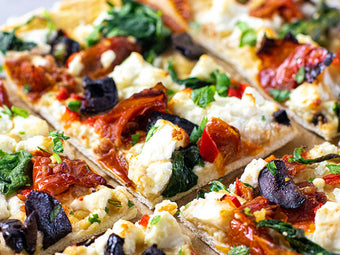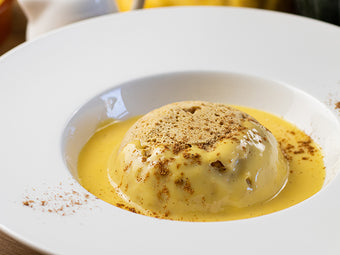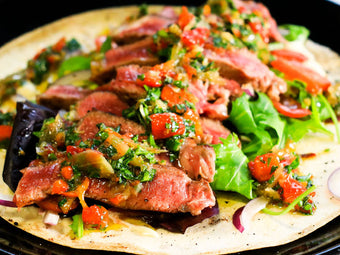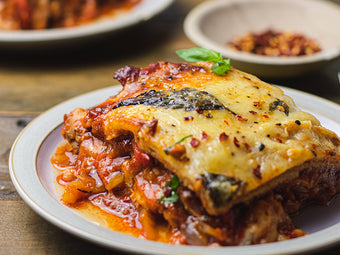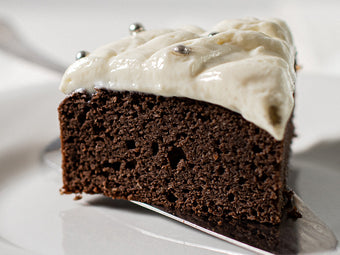Why is Lo-Dough more expensive than normal bread?
A Commonly Asked Question - Answered
We are often asked why Lo-Dough costs as much as it does to buy... and it's a fair question. Taken next to another wrap or bread/dough product, gram for gram we are significantly more expensive. Fact.
Lo-Dough is unlike any other bread/dough/pizza-base product currently on the market. It's not actually bread at all, at least not conventionally speaking. It is the product of around 2 years of endeavour by the companies founders Ben Holden and Rob Wales. From relatively inauspicious beginnings making early prototypes of Lo-Dough on Ben's parent's kitchen worktop and overnight baking sessions in Rob's garage, the slow and careful evolution of the concept has resulted in a commercial product that cannot be baked conventionally. In fact, here at the pilot plant in Rochdale, it takes 8 hours to make a piece of Lo-Dough - time, labour and ultimately money.
Now obviously, we cannot go into the ins and outs of the baking procedure here - but rest assured, if you were come and sit outside the Lo-Dough factory here in Rochdale, you'd notice the distinct lack of high-end performance cars going in and coming out of the gates. We are not in the business of over-pricing the product for a quick buck and in this worrying age of obesity and type-2 diabetes, we want as many people as possible to be able to indulge in pizzas, kebabs, pastries and cakes for as few calories and carbs as possible. Ever since the opening of trading in 2017, we have been looking at way's to refine the process, improve our systems and find the best-priced ingredients to make Lo-Dough as cheap as humanly possible without compromising on quality. Right now, from the pilot factory we are in, the boxes we sell on subscription are the cheapest they can be.

Value Is About More Than Just Weight
Price, as ever, is relative. We don't measure value by the gram. We see Lo-Dough as an advanced piece of food technology - albeit one that is distinctly free of whacky, chemistry-set ingredients. What you get when you buy Lo-Dough is the lowest calorie (39kcal), lowest carb (2.2g), gluten-free, sugar-free base ingredient that unlocks hundreds of previously unthinkable recipes for people on restrictive diets. It can be used to make pizzas, quiches, toasties, kebabs, wraps, pasties, puddings, stuffing, brownies, cakes, cracker-breads, mug-cakes and more. Plus, without the use of additives, unopened it has an ambient shelf life of 6 months.
At just 28g, Lo-Dough is incredibly light. But it also packs a fibrous punch - with nearly 10g of fibre, one piece fulfils a third of your recommended daily fibre intake. Study after study shows the link between fibre and satiety - the feeling of fullness. In effect, eating a fibre-packed product like Lo-Dough at just 28g will give a similar fullness to a much higher grammage of something like rice, pasta, potatoes or regular bread - the usual white carbs. Those are the carb's that your body will ultimately break down into sugar, without any further significant nutritional benefit. Lo-Dough, unlike flour-based ingredients and other white carbs, doesn't cause any such problem.
Weighing Up The Cost
At it's cheapest Lo-Dough will cost you around £0.80 per base and at its most expensive, it will come to £2.62 - delivered. So a fully cheesed-up, sauced-up pizza using Lo-Dough will cost between £2 and £3.80. This actually stacks up well next to a large number of supermarket-bought pizzas and incredibly well next to any takeaway. It also happens to stack up very well next to the price of a shot of strong alcohol in a bar, a cup of coffee from a high street chain, the price of a pint, a packet sandwich, a couple of bottles of water, a couple of cans of energy drink and much, much more.
Our point here is not to say any of these products are ideally priced, or that they represent any kind of benchmark, but it is interesting what people will pay for without batting an eyelid. In the case of Lo-Dough, the only difference is you have to make your own finished product - ie a pizza. In the case of a pizza, this will take 5-10 minutes of time preparing it and a 7-10 minute wait while it cooks - again - what you end up with is a pizza likely to be a third of the calories of an average pizza and somewhere around a tenth of the carbs. We think this represents value and we're so proud of that.

One of the main criticisms of our product is the price when compared to other bread - but what we are offering is far from generic bread - it is a one of a kind product, made in a unique way and offering unique health advantages over similar products. As the company grows and our scale of production increases, you will see the price come down - if we can't convince you on price right now, we hope we will be able to soon.
Watch this space.





